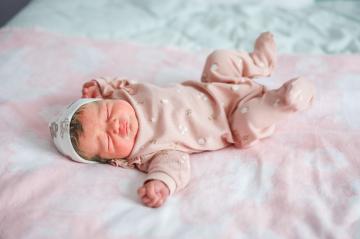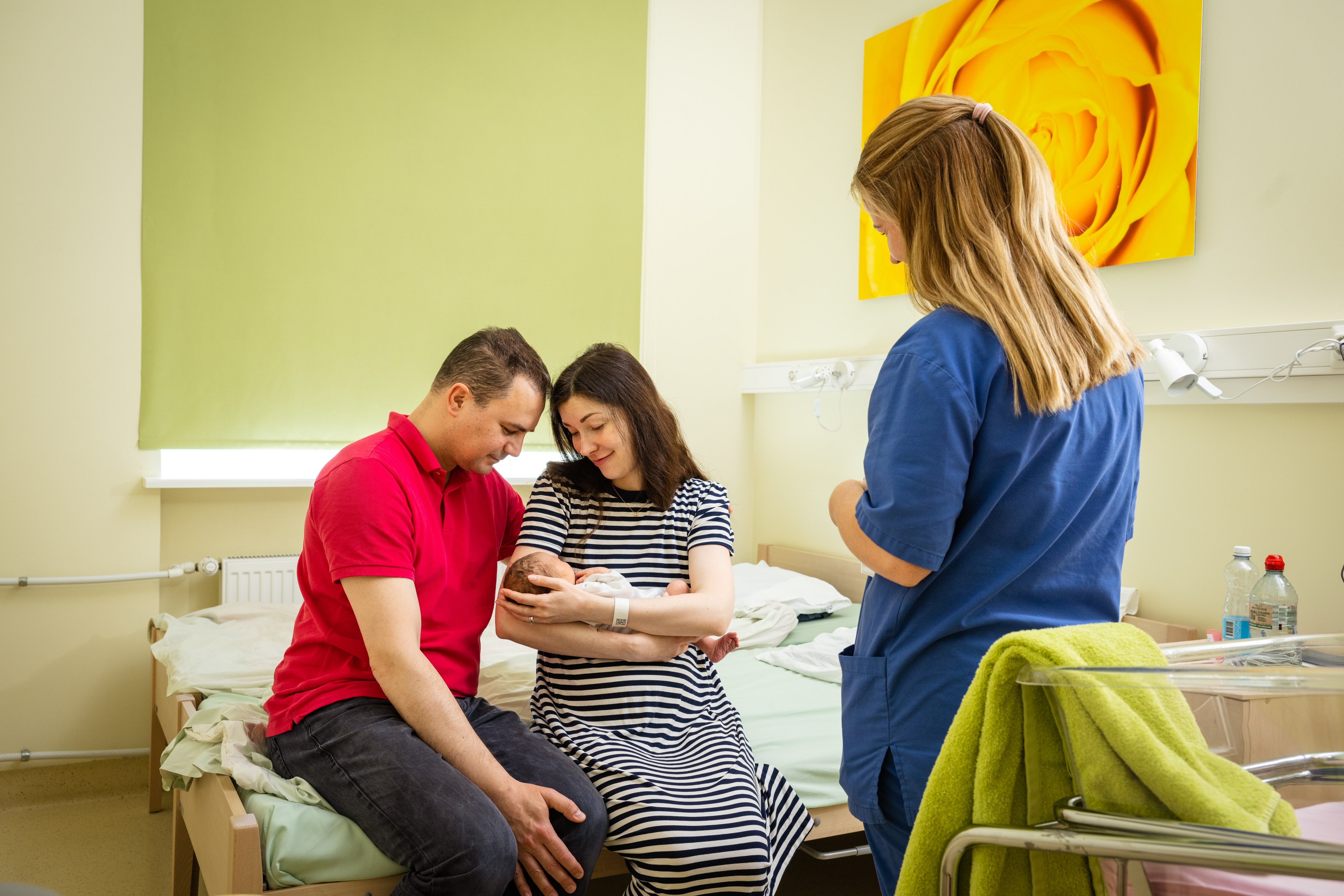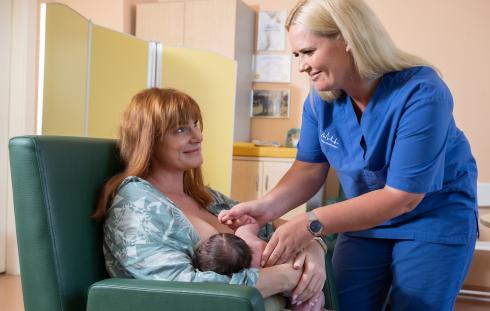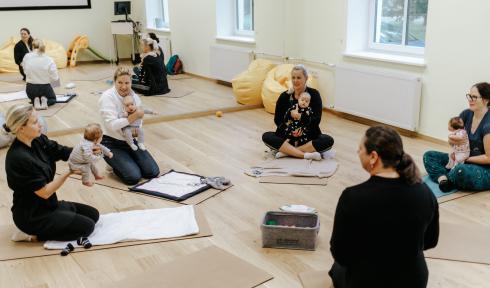Full-term newborn
Adjusting to a new life

Monitoring of a full-term newborn
Full-term newborns weigh 3200-3800 grams on average and are 46-54 cm long. The head circumference is generally 34-36 cm. The chest circumference is generally either equal to or 2-3 cm smaller than the head circumference.
The paediatrician's examination and assessment of the newborn usually takes place within the first 24 hours. They assess cardiac function and circulation, breathing, status of the digestive organs, size and position of the organs in the abdominal region, stool discharge and urination. The newborn’s behaviour is monitored and their muscle tone and reflexes and the development of their hip joints and external genital organs are examined. In addition, the midwife will perform routine daily examinations to assess changes in body temperature, activity, and skin, and check the umbilical cord stump and its surroundings for inflammation. The midwife will assist and instruct the parents in caring for the newborn (eye cleaning, skin care, care of the umbilical cord stump and its surroundings, bathing).
A full-term newborn is not separated from their mother. If the newborn requires further monitoring and treatment after birth, they will be admitted to the neonatology department. The neonatology department has intensive care family wards for newborns in need of treatment, where parents have the opportunity to stay with their child 24/7 and actively participate in their care.
Early discharge
Discharge from the hospital depends on the health of both the mother and the newborn. Early discharge is allowed if the following criteria are met:
- Single pregnancy
- Gestational age of 38 to 42 weeks
- Weight and hight correspond to the gestational age
- Mo complications have occurred during pregnancy, childbirth or the postnatal period
- The newborn has been in a stable general condition for the last 12 h, documented as: respiratory rate <60x min; heart rate 100-160x/min; body temperature 36.5-37.4 degrees Celsius
- The newborn has urinated and passed meconium independently
- At least two documented independent breastfeeding sessions have occurred
- No developmental abnormalities that would require monitoring and examinations at the hospital have been detected
- No bleeding has occurred
- In the case of jaundice, it must have been fixed and follow-up examinations must have been scheduled
- Newborn care training has been completed: feeding, monitoring urination and stool passage, navel and skin care. The mother has been informed about the main signs of illness in newborns and ensuring the safety of the newborn (driving, sleeping)

 Terviseportaal
Terviseportaal

